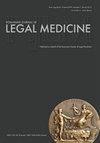Neurorehabilitation using Virtual Reality for Post-Stroke Patients: Medical Utility and Ethical Aspects
IF 0.4
4区 医学
Q4 Medicine
引用次数: 0
Abstract
: Stroke is a leading cause of disability amongst adults worldwide. While mortality rates decreased in the last decades, the morbidity associated with the occurrence of stroke is a major cause of disability, missed days of work, decreased quality of life and of increased healthcare costs. Stroke survivors frequently suffer from speech impairments, motor deficits, spasticity, cognitive impairment or bowel and bladder dysfunction. Rehabilitation interventions can aid in alleviating the impact these complications have on the activities of daily living, improving cognition, gait and balance, decreasing spasticity and reducing pain. While classic rehabilitation programs were proved to be highly efficient in achieving these goals, the implication of newly developed technologies such as virtual reality (VR), when available, could improve patient outcomes, providing an easy-to-use, exciting new tool that can be used both in a clinical setting and at home. In this paper, we review how VR has emerged as a highly promising tool in post-stroke comprehensive rehabilitation programs, and we escalate the most recent progress in the field while emphasizing the ethical aspects regarding the use of VR in脑卒中后患者使用虚拟现实的神经康复:医学效用和伦理方面
:中风是全世界成年人致残的主要原因。尽管死亡率在过去几十年中有所下降,但与中风发生相关的发病率是导致残疾、误工、生活质量下降和医疗费用增加的主要原因。中风幸存者经常患有言语障碍、运动障碍、痉挛、认知障碍或肠和膀胱功能障碍。康复干预有助于减轻这些并发症对日常生活活动的影响,改善认知、步态和平衡,减少痉挛和疼痛。虽然经典的康复计划被证明在实现这些目标方面非常有效,但新开发的技术,如虚拟现实(VR),如果可用,可以改善患者的预后,提供一种易于使用、令人兴奋的新工具,既可以在临床环境中使用,也可以在家中使用。在这篇论文中,我们回顾了虚拟现实是如何在中风后综合康复计划中成为一种非常有前途的工具的,我们升级了该领域的最新进展,同时强调了在
本文章由计算机程序翻译,如有差异,请以英文原文为准。
求助全文
约1分钟内获得全文
求助全文
来源期刊
CiteScore
0.50
自引率
25.00%
发文量
0
审稿时长
6-12 weeks
期刊介绍:
The Romanian Journal of Legal Medicine, the official publication of the Romanian Legal Medicine Society, is devoted to the publication of the original investigations, observations, scholarly inquiries and reviews in the various branches of the forensic sciences.
These include forensic pathology and histochemistry, clinical forensic medicine, medical malpractice, traffic medicine, chemistry, biochemistry, thanatochemistry, clinical and forensic toxicology, alcohology, biology (including the identification of hairs and fibres), the physical sciences, firearms, and document examination, physical anthropology, serology, forensic genetics and paternity (with special emphasis on recent advances in DNA technology and PCR), forensic psychiatry and behavioral sciences, forensic odontology, law and ethics, history of forensic sciences. RJLM also includes similar submissions dealing with forensic-oriented aspects of the social science and the area where science and medicine interact with the law.

 求助内容:
求助内容: 应助结果提醒方式:
应助结果提醒方式:


